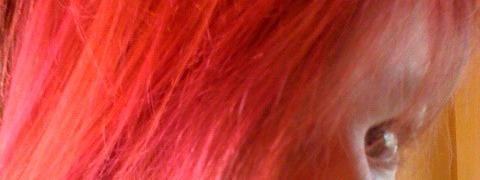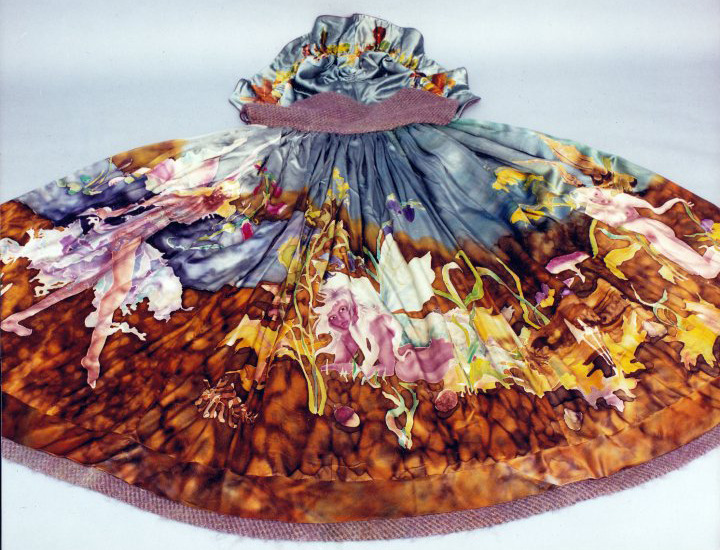There are more French words to trip us up than just the infamous pompon, (NEVER “pom-pom” or “pompom” or “Pom Pom”. Really. Never.) I have already written about that one. There are a LOT of foreign words that trip us up, and it would behoove us to make the effort to get them right.
For ages, France was the seat of high fashion, with Paris as its capital. It probably technically still is, except there is an unbelievable flow of seriously delicious high fashion stuff coming out of Russia (Ulyana Sergeenko), Lebanon (Ziad Nakad )and China (Guo Pei). Nevertheless, Paris has left an indelible mark on our fashion words and, as usual, we mangle them.
Oh how our favorite ribbon staple is mangled. The staple, of course, is grosgrain. Early on in your fashion career, you might have said “gross-grain,” like some moldy and spoiled bag of oats. Later, mortified, in fashion 101, you would learn that it is pronounced “grow-grain,” as in a beautiful field of fresh oats. If you heard it before you saw it in print you might spell it “growgrain”, but you’d be wrong. Google would helpfully sort you out and only give you the correct “grosgrain” results. Hopefully you’d take the hint.
Some of the French fashion words we borrow are allowed two pronunciations: the French, and our anglicized version. I am not sure why grosgrain does not qualify, except that perhaps there is no word “grosgrain” in English, but there is indeed an English word, “empire.” We get tripped up when we hear the French version used, and have no context with which to hear it: “Ahm-peer” can then sound like “umpire” to our American ears. But why would there be an “umpire waist” gown anyway? When we come across these obviously misheard words, why do we not say “Hey, wait a minute. That can’t be right. Umpire waist?” But then again, how does “empire” waist make any more sense?
It really is of course, empire, not umpire, and it does make sense. It also does not really matter which pronunciation you use—ahm-peer or em-pire—as long as you are not using the one associated with baseball games. It is “empire” because of France. It is “empire” because Empress Josephine made it popular. If you were French, you might also call it “à la grecque,” as the style was influenced by the ancient Greek styles of dress. If you were English, you’d call it “Regency Style.” Still, we refer to that high waist silhouette they wore in the Regency era as an “ahm-peer” waist, simply because Paris ruled the fashion world for so long.
We only need to look at fabric names to find more examples. That fancy Shar-moose. She might have a brother, Chocolate-moose. Both belong in a parody comic strip about caribou. However, charmeuse is a smooth and drapey fabric, and is a delight to wear. Never mind that it is Satan’s own with which to sew. It is usually made of silk or polyester, with the polyester being the worse nightmare of the two for our garment assembler. It’s such a problem that it almost begs to be mispronounced and misspelled. It’s either that or spew epithets about it while shoving it through the sewing machine. It is properly “charmeuse.” Do not misspell it “shar-moose.” Though “shar-moose” is not too far from the correct pronunciation, it is better, and less embarrassingly said, “shar-mooz”.
The darling of the 80’s, the fabric velour should not be misheard art all. Of course I may simply be dating myself on this one. When shopping for fabrics for a “Frozen” costume, it seemed the whole world was looking for stretch velour for the coronation costumes, and Anna. It’s what I used for the cape for Elsa’s transformation. Why then do I hear people say “valor” instead of velour? It’s not a particularly brave fabric. In fact it’s soft and comfortable. Another French word, velour means “hairy”, or simply “velvet”, which is why we use to for this similar-to-velvet fabric. It helps to avoid confusion between the two—unless you then call it valor, which just confuses things more than just using the word “velvet” to mean velour. At least we’d know it was fabric being talked about.
Kin to grosgrain, faille is the French word for a ribbed fabric. It might one game been used for making hoods for women. One does not use it to organize oneself. It may sound like “file,” and you will correctly say it like “file,” but is it indeed “faille”. To confuse things even more, faille is now the French word for “fault” as in “fault line.” How it got from “women’s hood” to fault line is a mystery that is shrouded in time, probably rooted in the similarity between the fissures around fault lines, and the fissures between each rib. That’s not really important here. What is important is that you spell is correctly: f-a-i-l-l-e.
And here we have the classic war between France and Spain. Hombre and ombre. Hombre is that dude that Trump hates so much, for whatever made-up reason he came up with. It’s a Spanish word, used this way in North America. We can ignore this word it has nothing do with our topic. Our word is “ombre” without the “h”, and more correctly with the accent aigu on the “e”, as in “ombré”. It’s also the name of a card game from the 17th century, from the Spanish, meaning “man”—just ti confuse you more. Except the card had probably never entered your mind. Just remember it’s the one without the “h”, for “him.” It’s not a man. It’s a dyeing technique where one color smoothly transitions to another.
“Cumberbund,” saved ’till last, you are almost as offensive as “pompom/pom-pom,” and yet you are not French. You are Hindi. Literally, you are a waistband: cummer (waist) and bund (band or strap). I’d like to blame it on Benedict Cumberbatch, but this misheard word has been around far longer than he. “Cumberbund” is used almost as often as the correct “cummerbund.” You even find the misspelling listed as a correct alternative like “pom-pom/pompom” is for pompon. But if you want a better price for one, absolutely look for “cumberbund” on eBay. To be sure, it is emphatically cummerbund, and the pleats face upward, to catch the crumbs. I’d feel better if the misheard version was “crumberbund”, as at least there would be some sort of reason for it. I might even lobby for the change as it is punny, and as such is far less offensive than “cumberbund”. Is Benedict Cumberbund on that list of Benedict Cumberbatch name misspellings? Should be. Right, fashionistas?
Join me in my crusade to eliminate misheard words in the fashion world. They are everywhere, and they are confusing everyone. Eschew obsfucation!
References
https://en.wikipedia.org/wiki/Empire_silhouette
https://en.wikipedia.org/wiki/Charmeusehttp://www.dictionary.com/browse/velour?s=t
https://en.oxforddictionaries.com/definition/hombre
https://en.oxforddictionaries.com/definition/ombre

